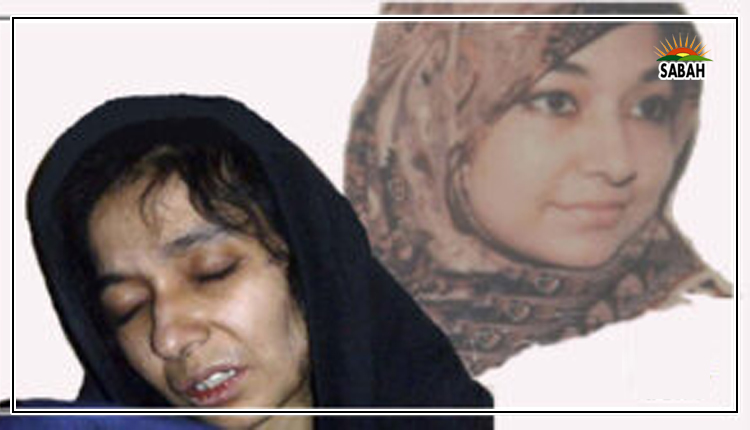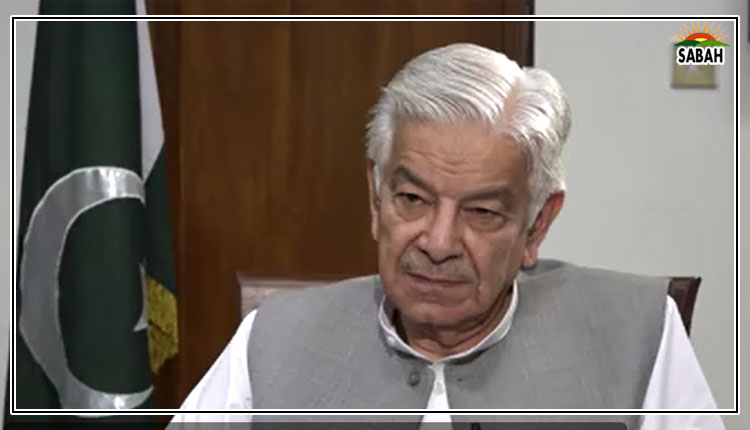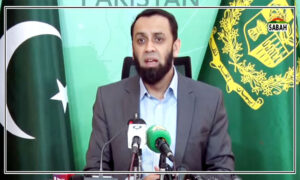Normalising narrative on SRHR to achieve development…Dr Luay Shabaneh
With worried eyes and deep breath, 18-year-old Rabia from a remote village stared at me while replying to my questions regarding her future dreams. She said, I face societal suffocation, social taboos, unsafe workspace, limited opportunities for enjoyment, coupled with poor employability skills and poor income, which has led me, like many girls and boys of my generation, to consider immigration.
I was struck by her deep awareness and reflection coupled with her bitterness about the obstacles encountered to fulfil her potential.
Rabia is just like many young people in Pakistan and other developing countries facing economic, social, emotional and mental health challenges. As their age advances, higher percentage of both boys and girls discuss reproductive sexual health issues among themselves.
UNFPA reports indicate that in many developing countries, there is overall inadequacy in reproductive health knowledge among adolescents and youth which affects their attitude and practices. Adolescents need SRH counseling services for their wellbeing and safety as they grow up.
According to a recent article by the Director General of WHO, Dr Tedros Adhanom Ghebreyesus, advancing the sexual in sexual and reproductive health and rights (SRHR) is a global health, gender equality and human rights imperative. The article provided very interesting insightful perspective of sexual health from a public health and development angle.
In this write-up, I would like to review the current situation in Pakistan from the perspective of the said article. To begin with, and avoid any confusion or misconception, the term sexual in the concept of SRHR is not related to sexual intercourse. WHO defines sexual health as a state of physical, emotional, mental and social well-being related to sexuality; it is not merely the absence of disease, dysfunction or infirmity. SRH is an important aspect of population health. The global approach addressing womens health emphasised mainly on maternal health putting aside important dimensions of SRHR. Consequently maternal mortality remained unacceptably high due to insufficient access to services, uneven quality of care and overwhelmed health workers. This situation speaks perfectly of the womens health situation in Pakistan where the focus is on maternal health at the expense of other aspects of womens health and needs through their lifecycle including menstruation, endometriosis, vulvodynia, dyspareunia, and post-menopausal health, cervical, breast, uterine and ovarian cancers. This applies also to mens sexual health and needs including infertility, premature ejaculation, impotence and psychosexual concerns, HIV, reproductive tract infections and prostate and testicular cancer.
In November 2023, the Government of Pakistan made a very strong and progressive statement during the United Nations Conference marking the 30-year progress of the implementation of the Programme of Action of the International Conference on Population and Development (ICPD). The statement involved progress and vision of Pakistan regarding SRHR and population and development agenda; it was highly welcomed by the participants from all over Asia region. The implementation of Pakistans vision is important.
Sexual health is a human right, but in many countries, including Pakistan, it is noted that womens and girls rights are subject to violations in the context of sexual health. This is embedded in hierarchical structures of society creating gender inequality where powerful people control the bodies and emotions of the less powerful. This speaks about UNFPAs global initiative on bodily autonomy launched by the Executive Director, Dr Natalia Kanem, involving the power and agency to make choices about ones own body without violence or coercion. In the same vein, UNAIDS Executive Director, Winnie Byanyima, called for supporting women and girls at the frontlines of the defence of human rights. She called for womens and girls leadership to protect and advance human rights. Child marriage and forced marriages is an example of this violation of human rights and bodily autonomy in Pakistan.
The provision of the sexual health care is not limited to public institutions only, private sector is the worlds largest economic force and uniquely positioned to drive positive social impact through promoting diversity, equity and inclusion through its SRH intervention. Private sector partners pledged $8 billion in financial commitments to help end maternal deaths, the unmet need for family planning, and sexual gender-based violence by 2030 at the 2019 Nairobi Summit, marking the 25th anniversary of the International Conference on Population and Development (ICPD). Private sector is an important opportunity that Pakistan needs to seize.
Sexuality is a private and sensitive matter in many countries and cultures including Pakistan. Therefore, many development practitioners and leaders refrain from engaging in this topic in public for various reasons, but the evidence shows that avoidance of discussing and safe landing it within the religious and cultural contexts worsen the risks. It is important to remember that sexual and reproductive health and reproductive rights affirm universal values that cut across religious and cultural divides. Henceforth, designing and launching culturally sensitive and religiously accepted awareness campaigns on sexuality education and integrating in the curriculum among adolescents and youth is important component.
It is, therefore, important to expand sexual and reproductive health programming beyond maternal health and to be inclusive for all population in the reproductive age regardless of marital status to reduce maternal mortality, adolescent pregnancies, HIV/STIs prevalence rate and ensure women and girls and public at large enjoy their human rights ratified by Pakistan. Proper legislation and policies to expand access to SRH services is important, and availability of public funding is vital.
Courtesy The Express Tribune












